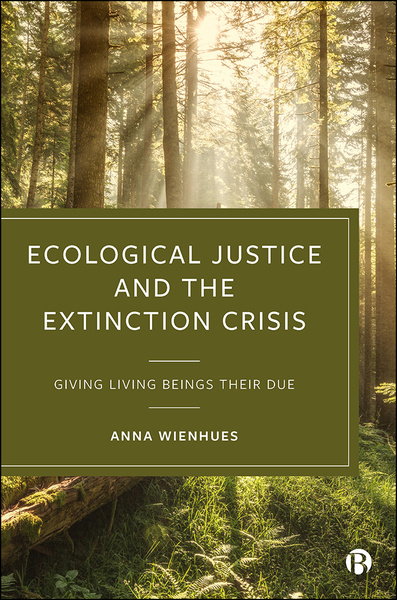
Title: Reevaluating Psychological Theory: Essential Texts from a Twitter Discussion
Introduction
An intriguing Twitter thread initiated by Ekaterina Damer ignited a lively exchange among psychologists regarding the condition, significance, and prospective evolution of theory in psychology. Offering critiques and methodological suggestions, notable psychologists contributed illuminating resources. Serving as a dynamic reading list, this thread stands as a key asset for anyone intrigued by the “theory crisis” that increasingly mirrors the well-documented “methods crisis” within the field.
This article presents a summary of the resources exchanged in that dialogue, emphasizing central themes, specific papers, and their importance. Whether you are a psychology student, a researcher, or someone dedicated to epistemological integrity, these recommended readings furnish both historical context and innovative approaches.
Central Themes in the Recommendations
1. The Essence of Psychological Explanation
– Robert Cummins’s “How does it work?” versus “What are the laws?” delves into two dominant models of psychological explanation: mechanistic comprehension versus nomological breadth. Cummins highlights a crucial difference between clarifying how phenomena transpire (e.g., within cognitive neuroscience) and discovering general laws that predict behavior. This work emphasizes the persistent debates between cognitive process models and empirical generalizations.
2. Theory Development in Practice
– Numerous recommendations concentrate on the nuances and challenges of constructing theories:
– Gawronski and Bodenhausen’s chapter regarding theory and explanation in social psychology
– Valerie Gray Hardcastle’s “How to Build a Theory in Cognitive Science”
– Jaccard & Jacoby’s hands-on guide to model and theory construction
– Innovative hypothesis generation by W.J. McGuire, providing heuristics for idea development
– Fiedler’s (2004) essay on the “creative cycle of theory formation”
These works address the prevalent obstacles psychologists encounter when attempting to formulate testable, cohesive, and creative theories. They also provide philosophical and practical frameworks to facilitate effective theory construction.
3. The Philosophy and Critique of Theory Validation
– Notably, Paul Meehl’s contributions were central to the conversation. Renowned for his critiques of null hypothesis testing and the ambiguous state of psychological theories, his influential papers (“Theory-testing in psychology and physics,” “Appraising and Amending Theories,” and “Why Summaries Are Uninterpretable”) were frequently cited.
– Meehl cautioned against excessive reliance on empirical validation without adequate theoretical foundation — a warning that continues to resonate decades later.
– Roberts and Pashler (2000) further contributed with a critical examination of goodness-of-fit and its compelling yet often deceptive role in theory assessment.
4. Theory vs. Model: Computational and Mechanistic Insights
– Simmering et al. (2010) initiated a conversation on computational modeling within developmental psychology, exploring the conditions under which models transcend mere data-fitting to deliver mechanistic understanding.
– Wilson (2001) provided classifications of theoretical constructs and examined validation tactics, advocating for clearer distinctions between hypothetical entities and observable phenomena.
5. Diagnosticity and Theoretical Strictness
– Fiedler (2017) highlighted the importance of theories possessing diagnostic power — the capability to eliminate mutually exclusive hypotheses — and critiqued contemporary practices where theories are often too adaptable to be disproven.
– Denny Borsboom’s “Theoretical Amnesia” expresses concern about the frequent oversight of rigorous theoretical work in psychology’s publishing landscape, calling for a revitalization of theoretical contributions.
6. Social Interactions and Meta-Reflection
– In addition to scholarly writings, some contributors referenced social initiatives like the “Psychological Theory Discussion Group” on Facebook, underscoring a burgeoning grassroots movement to emphasize theory.
– Twitter discussions by Iris van Rooij and Paul Smaldino further enrich the dialogue with additional references and meta-level insights.
Conclusion: The Rise of a Theory Crisis?
This assortment of suggestions, stimulated by a somewhat casual Twitter exchange, represents a critical reassessment of psychology’s theoretical underpinnings. While the “methods crisis” — related to replication issues, p-hacking, and statistical methods — has captured recent attention, the often-overlooked counterpart in this transformative dialogue has been theory. Absent robust theories, empirical diligence may only refine an inadequate or disjointed knowledge framework.
This growing awareness of the importance of theory — and its necessity for rehabilitation, expansion, and reinvention — indicates that psychology is experiencing a significant epistemological transition. As contributors like Tal Yarkoni, Daniël Lakens, and others have suggested, the field is heading toward a future where theoretical clarity is not merely an optional addition but a foundational necessity.
Further Reading and Involvement
For those keen on continuing the dialogue or delving deeper, check out the Twitter discussions by Iris van Rooij and Paul Smaldino or become part of the “Psychological Theory Discussion Group” on Facebook. Meanwhile, the readings themselves constitute a comprehensive syllabus for any